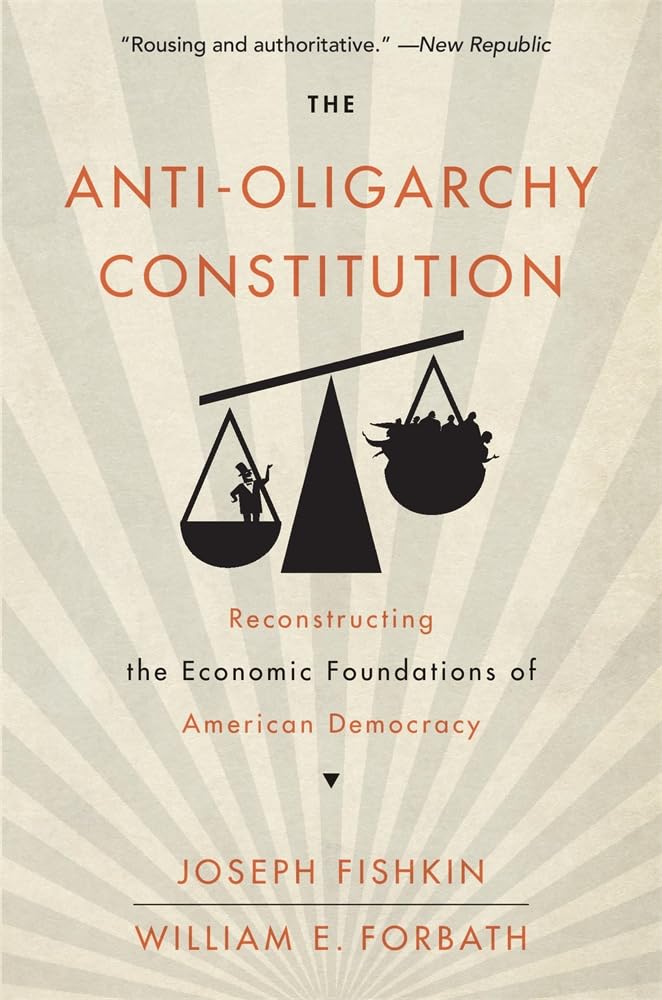In their rousing and authoritative study The Anti-Oligarchy Constitution, Joseph Fishkin and William E. Forbath attempt to recover the Constitution’s pivotal role in shaping claims of justice and equality. As they explain at the outset, they aim to revive what Franklin D. Roosevelt called the democracy-of-opportunity tradition, an ambitious constitutional project that stretched back to the arguments over the nation’s founding. According to this way of thinking, the central objective of republican reform was to ensure a broad equality of conditions both to permit maximum participation in public life and to serve as a robust safeguard against forces of corruption and tyranny. Only a roughly equal economic life could secure a just political order—and vice versa.
Democracy-of-opportunity advocates developed a three-pronged vision of how to steer the nation’s political economy toward higher democratic ambitions: the resistance to oligarchy (in politics and productive life alike); the creation of an open, expansive middle class; and the mandate of greater inclusion, in terms of race, gender, and other identity groupings. It’s crucial, Fishkin and Forbath argue, to understand these overlapping aims within the same American tradition. It is “a grave error,” the authors write, “to see a clash between a robust constitutional politics of race and sex equality and a constitutional politics of fighting class domination.” It is not possible to further one without the other.
The democracy-of-opportunity movement did not the leave the important work of interpreting and enforcing the Constitution to the courts. This understanding of constitutional politics reached its apogee, the authors argue, during the “second founding” undertaken by Radical Republicans in the Reconstruction era. Thaddeus Stevens, the leading Radical Republican on Congress’s Joint Committee on Reconstruction, argued, “The whole fabric of southern society must be changed … if the South is ever to be made a safe republic.” Republican institutions could not function, he observed, “in a mingled community of nabobs and serfs.”
The failures of Reconstruction, and the later rise of Jim Crow, bore out Stevens’s warning in detail. Stevens’s Joint Committee had laid out the stakes in its prophetic 1866 report: “Slavery, by building up a ruling and dominant class, had produced a spirit of oligarchy averse to republican institutions,” and to endorse a body of policies leaving this class “in the exclusive possession of political power, would be to encourage the same spirit.” The disputed presidential election of 1876—in which Congress brokered a victory for Republican candidate Rutherford B. Hayes—firmly restored the oligarchic planter class into power, while Northern political elites walked back their own prior allegiances to political economic equality for their own self-interested reasons.
